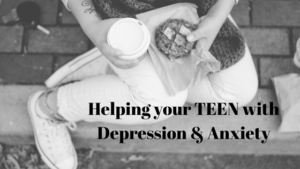Treatment For Eating Disorders In Greensboro, NC
Do I have an eating disorder?
Our counseling office is here to walk with you at a pace you are comfortable with. We understand that an eating disorder extends beyond food and often to traumatic experiences and life experiences.
Working with a counselor can be a supportive first step. Together, we will create a process that allows you to move forward in a gentle and constructive way.
Do I have an eating disorder?
This question is one that you may find yourself thinking – over and over.
You may feel that you view food differently than others. That food to you is more than something that you should be eating three times a day. That food is not as simple as breakfast, lunch, and dinner. You may hold a stronger deeper connection “or better yet – association” to food that others would not understand.
Food to you is more than a meal. It is more than food.
Food to you can often dictate how you will feel throughout the day or even how others may view you. Food may lead you to overconsumption. Food may lead you to anger, frustration, or pure hatred towards it because you simply cannot find the strength to put your fork down.
The food itself can lead to negative feelings towards yourself “I don’t like myself” – “I hate myself” – “I hate looking in the mirror”!
Eating Disorders are complex and require “time and energy” to understand their foundation as it impacts your day-to-day lifestyle.
If you are reading this and can relate to it, I want to encourage you to consider investing in yourself. I want you to be selfish and think about what is best for you. Not your family nor your dear friends. Think about what is best for you. Invest in your health and in your life towards a healthier better you. Counseling can be the vessel that guides you through the foundation of your eating disorder and towards empowerment.
How do I know if I need help with food?
- Do you have an unhealthy attachment or association with food? For instance, do you crave excessive amounts of food to control an emotion? If so, I want to encourage you to give me a call at 336-663-6570 to explore more of your symptoms and how counseling can help.
- Have you accepted that food has control over you?
- Do you find yourself frustrated and upset that you continue to engage in unhealthy eating cycles (overeating versus purging)?
- Do you binge eat?
- Are you eating limited amounts (that would be considered unhealthy) due to weight restrictions?
- Due to fear of gaining weight?
- Are you easily upset or frustrated when others judge your eating habits?
- Do you have “good” foods versus “bad” foods?
- Do you excessively worry about what you eat? Do the worries often lead to anxiety, anger, frustration or mood swings that can include depression?
- Do you make excuses not to eat with others?
If you answered YES to 5 or more of the questions then you may benefit from counseling.
Having an eating disorder does not mean that you are lost and hopeless. It simply means that you are ready to ask for help. It simply means that you are ready to regain control over your life and seek empowerment.



